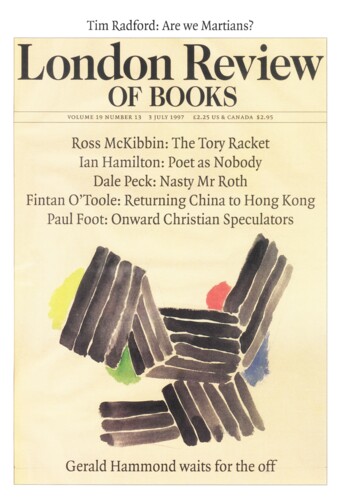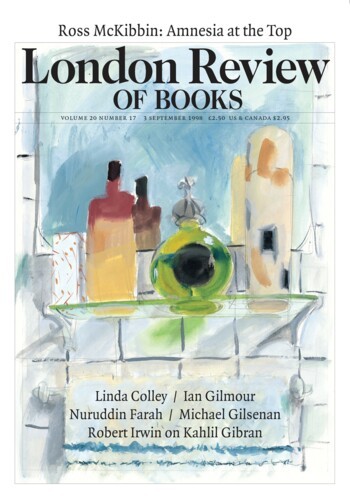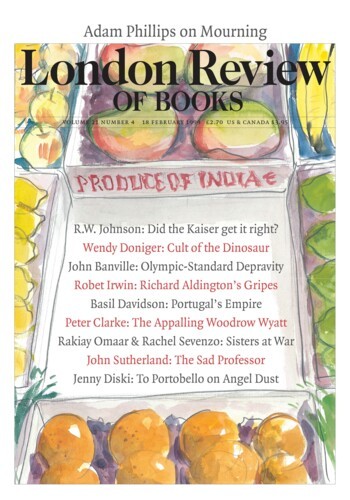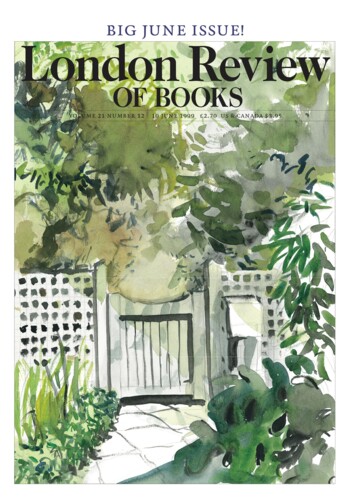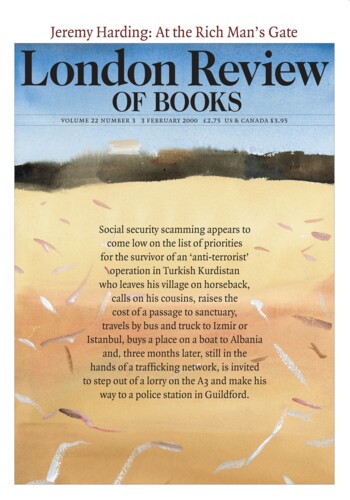Hiveward-Winging
Robert Irwin, 3 July 1997
‘I’ll just explain the central situation. Six people are trapped in a lift between two floors of a skyscraper – a musician, a surgeon, a charwoman, a conjuror and his female assistant, and a hunchback carrying a small suitcase.’’
